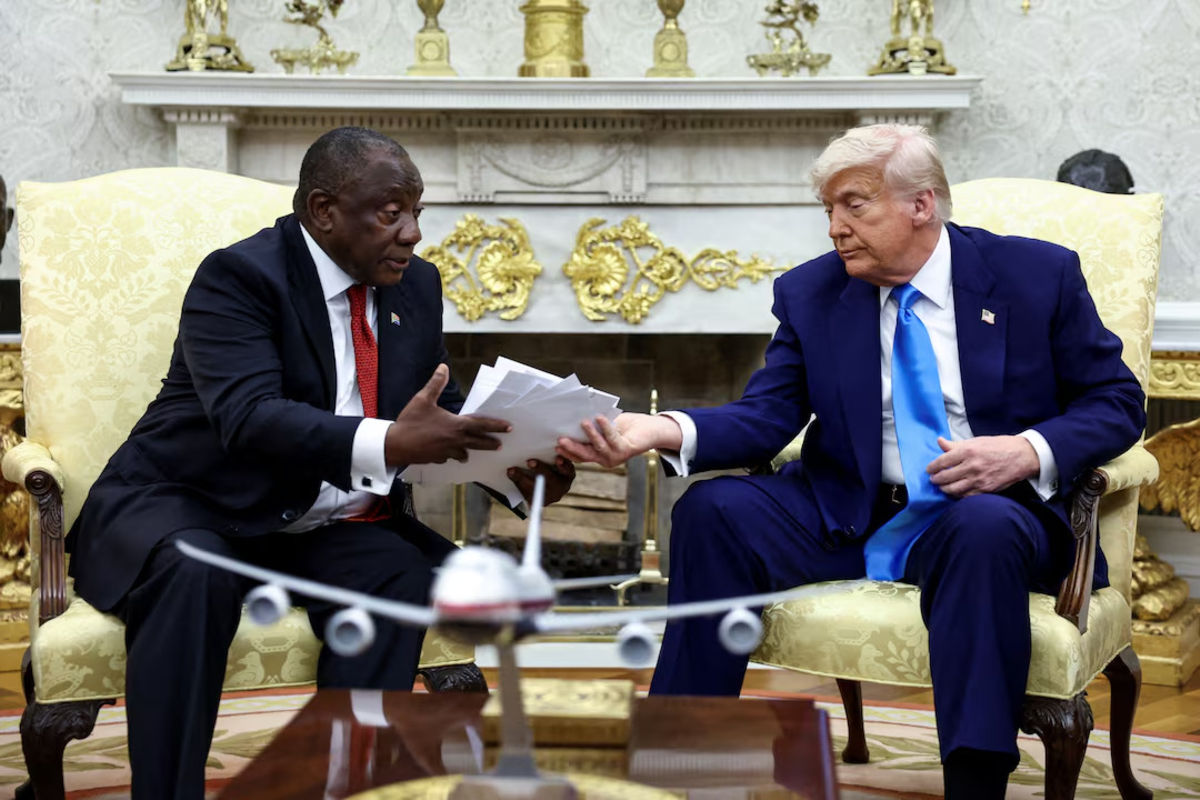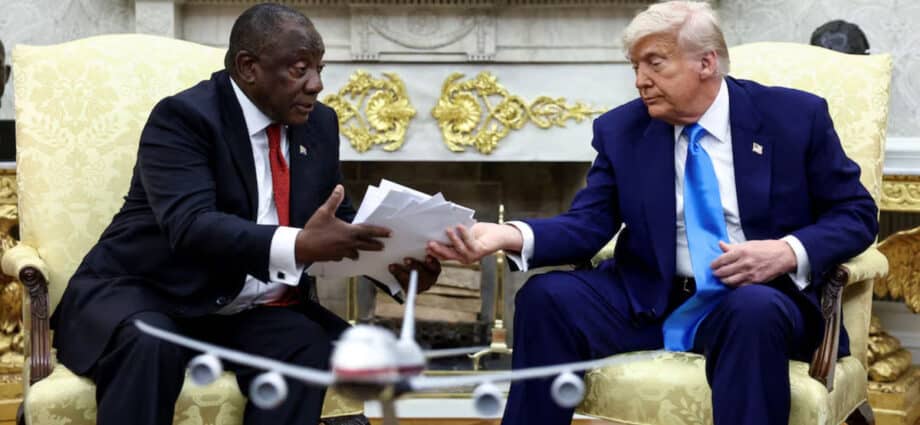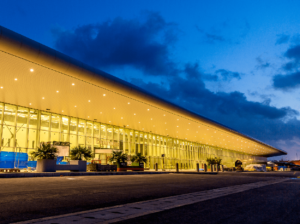
When critics assailed Donald Trump’s “America First” policy, I defended the principle: every leader should prioritise their nation’s interests.
When the US deported illegal immigrants, I agreed: borders can’t be open to every Tom, Dick and Harry of the world. But when Trump claimed “Genocide Against White Farmers” in South Africa, my pragmatism started to falter. White South Africans?
You see, though only 8 percent of the population, White South Africans are a very powerful demographic: If whites were truly facing systemic, genocidal violence, the global media would be saturated with the story.
But when the US government expedited the entry of 59 white South Africans – citing their “endangerment” – and Trump received President Ramaphosa with his fresh brand of diplomacy in Washington, publicly haranguing him for the “genocide” against white farmers in South Africa, I had had it.
I believe it’s time we face the elephant in the room: are we witnessing an openly racist American president?
I grew up in Nyerere’s Tanzania during the waning years of apartheid. News reports about the South African struggle were omnipresent, and like many of my generation, I internalised the ANC’s fight.
Nelson Mandela became an idol – he still is. But this very man was deemed a terrorist by the Americans.
How could the architects of state-sanctioned terror not be terrorists, while Mandela was? It wasn’t until 2008 that he was finally removed from the US terrorist watch list. How do you rationalise that?
I advocate pragmatism: Nations like Vietnam and Japan demonstrate that burying historical hatchets yields significant economic dividends.
Africa cannot afford to remain mired in past grievances; we must forge ahead. Some assume I ignore the West’s colonial history, but it was all I learned in school.
Progress requires workable solutions; trying to change the past is not pragmatic.
Yet, the recent US actions test my pragmatism. Imagine this: They never offered refuge to black South Africans suffering apartheid. They backed monsters like Savimbi in Angola.
Today, they ignore millions in the DRC, South Sudan, or Northern Nigeria—they even actively deny entry to Afghan allies who risked everything alongside US forces in Afghanistan. But white South Africans are prioritised, really?
Let’s be unequivocal: There is no genocide against white farmers in South Africa. A heartening development in this manufactured crisis is how many white South Africans have spoken out, clarifying their reality and committing to a shared future.
South Africa ranks fifth globally in per capita murders, a tragic legacy of apartheid’s violence. However, only 2 percent of homicides are whites, despite being 8 percent of the population. The narrative of targeted white genocide is a dangerous fiction.
Similarly, the need for land reform in South Africa is just. Decades of apartheid legislation systematically barred black South Africans from land ownership.
The result? A white minority, roughly 14 percent of the population, controls approximately 72 percent of farmland. This was engineered dispossession. We must acknowledge the need for redress, but this cannot resemble the chaotic seizures that characterised Robert Mugabe’s Zimbabwe.
President Trump’s stunts demand deeper consideration of his motivations. If US intelligence knows the situation in South Africa, so, why embrace a demonstrably false, inflammatory claim? Several interpretations emerge:
One, South Africa’s decision to take Israel to the ICC. Major regional players like Egypt, Saudi Arabia, and the UAE avoided this step.
While idealistic, did South Africa fully calculate the potential backlash from powerful nations adept at safeguarding their interests? Attracting their ire without a clear, overwhelming national benefit is a perilous strategy.
Two, Trump is pandering to far-right voters whose core narrative claims “whiteness” is under siege. Protecting and exalting whiteness is central to this worldview.
So, what better way to signal allegiance to this base than by staging a dramatic “rescue” of white South Africans – framed as victims in a Black-ruled nation?
Three, economic opportunism: is it possible that the US is just after the skilled farmers? Possibly.
But this objective could be achieved through standard immigration channels or targeted recruitment programs, without propagating harmful falsehoods about South Africa. The maligning appears integral to the political performance.
The cumulative effect forces a sobering conclusion: Africa faces a demonstrably hostile American administration under President Trump. AGOA, a vital trade lifeline for many, is mostly gone.
South Africa alone exported $3.2 billion in goods to the US under AGOA, part of the business that Ramaphosa was trying to rescue. Proposed taxes on remittances would impact economies reliant on diaspora income. Visa restrictions tighten, and companies face pressure to divest.
Africa’s response must be strategic. The AU’s statement in solidarity with South Africa is a crucial starting point. We must support equitable land reform.
Above all, we must accelerate intra-African trade – the very purpose of AfCFTA. Our current trade patterns, with only 15 percent, heavily skewed towards external partners, empower nations whose interests often conflict with our own.
We can choose our friends, but geography binds us to this continent.
By investing at home and deepening African markets, we cultivate the collective strength needed to confidently tell those who wish us harm to get lost.
Regardless of who they are.














